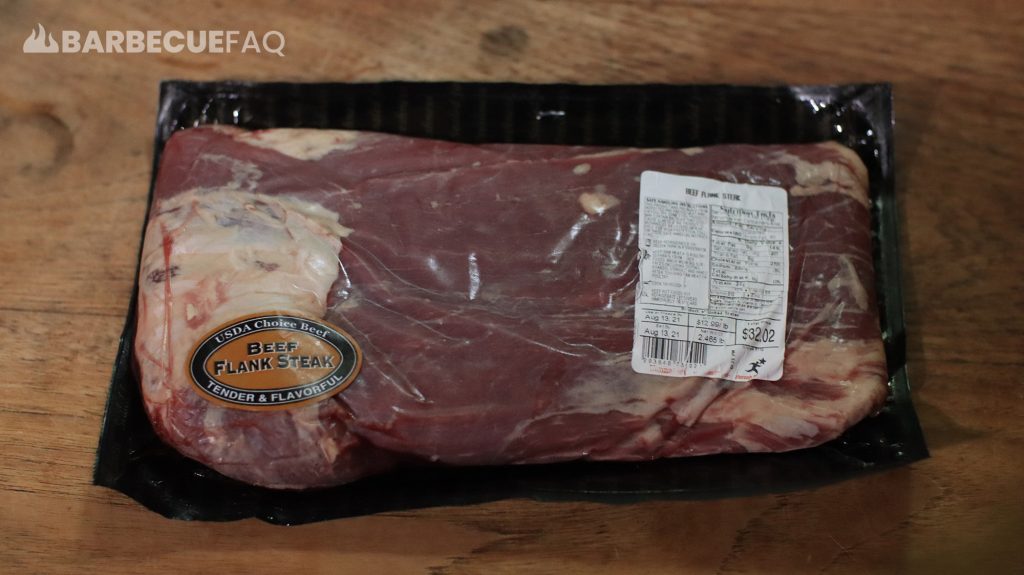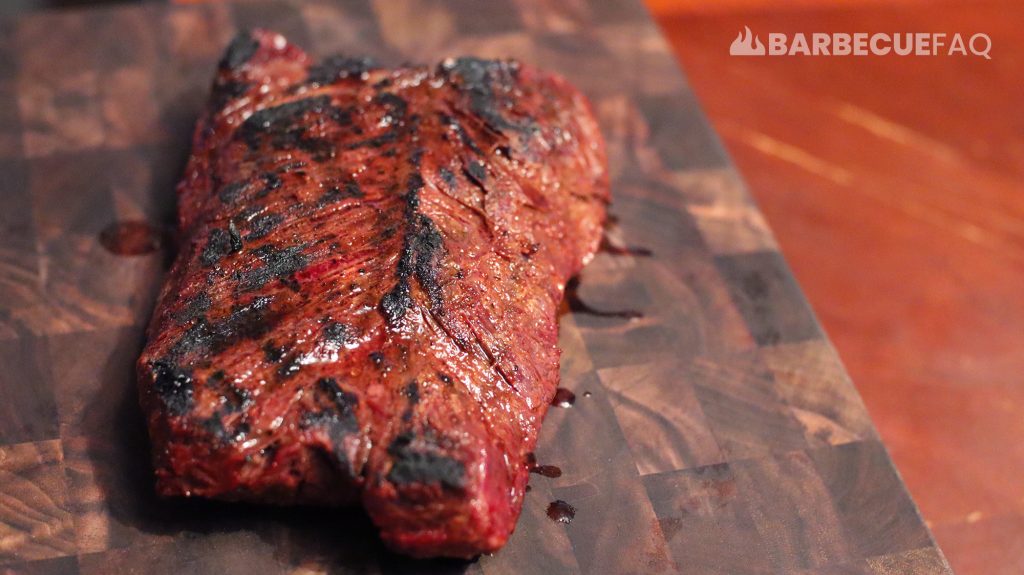Brisket is cut of beef taken from the breast section of the cow under the first five ribs.
The are 2 briskets per cow or 1 brisket per half carcass.
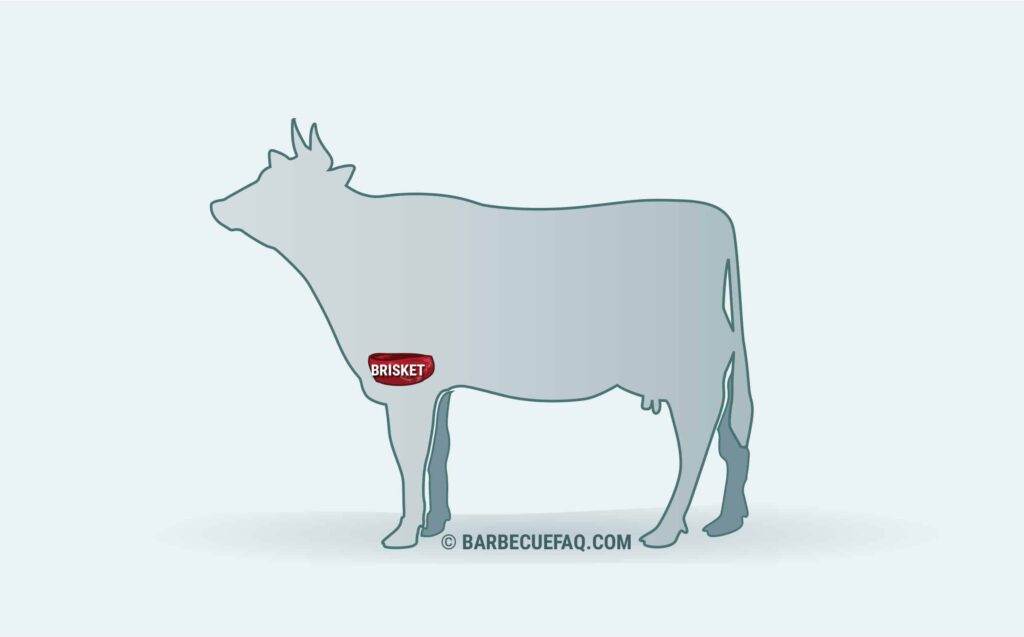
Since cows don’t have collarbones, the brisket muscles supports much of the cow’s weight; As a result, a lot of fibrous connective tissues develop.
In order to tenderize these connective tissues, brisket needs to be cooked at a low temperature for a long period of time.
A whole beef brisket is also comprised of 2 muscles:
- Brisket Flat
- Brisket Point
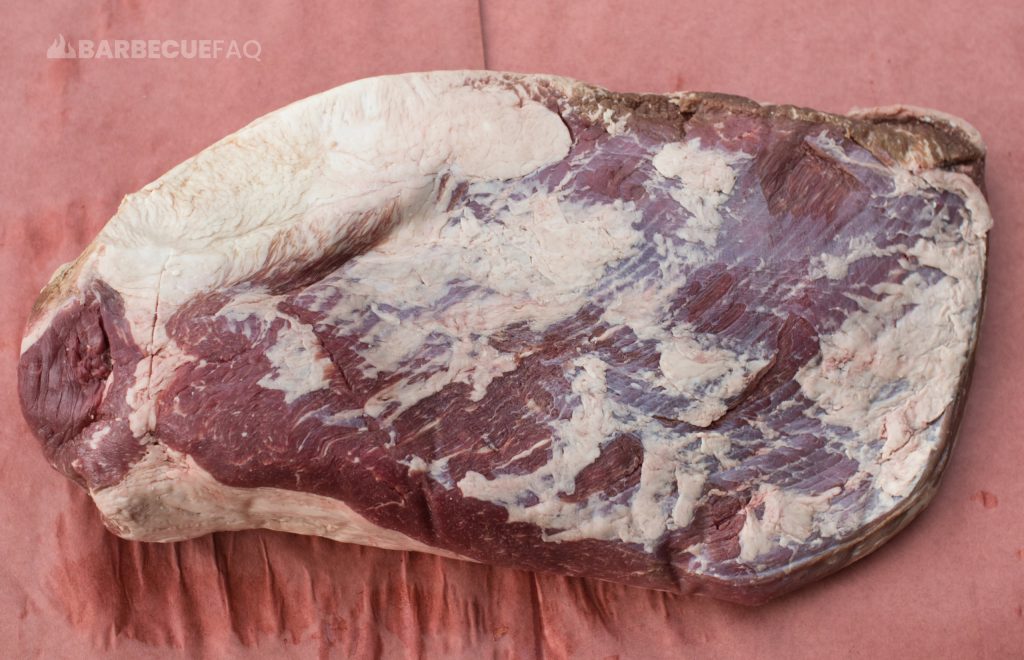
The Flat or “First Cut” or “Deep Pectoral” or “Navel” (Pectoralis profundi)
The word flat is a good descriptor as it’s quite literally a flat rectangular piece of meat.
Aside from the names above, the flat is also called the “lean.”
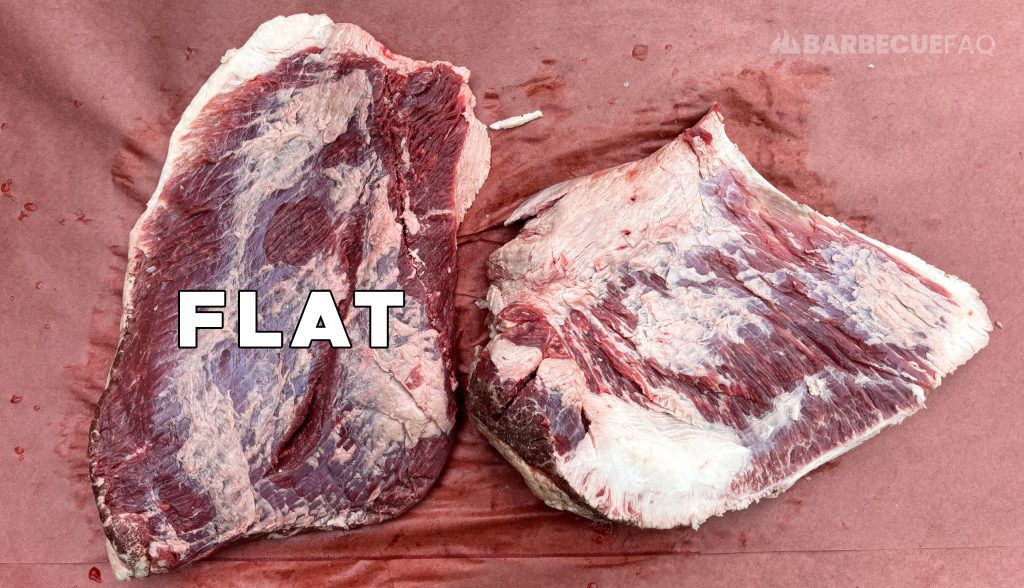
Lean describes the fat content in relation to the point – the flat has far less intramuscular fat (marbling) than the point.
The flat makes up the majority of the brisket and can weigh 3 to 10 lbs.
It’s common to find the flat sold separated from the brisket point and it will be labeled as such.
The Point or “Second Cut” or “Round” (Pectoralis superficialis)
Unlike the lean, the Point is much fattier and much smaller.
The point has extensive marbling and connective tissues; The result is more flavor but less overall meat yield.
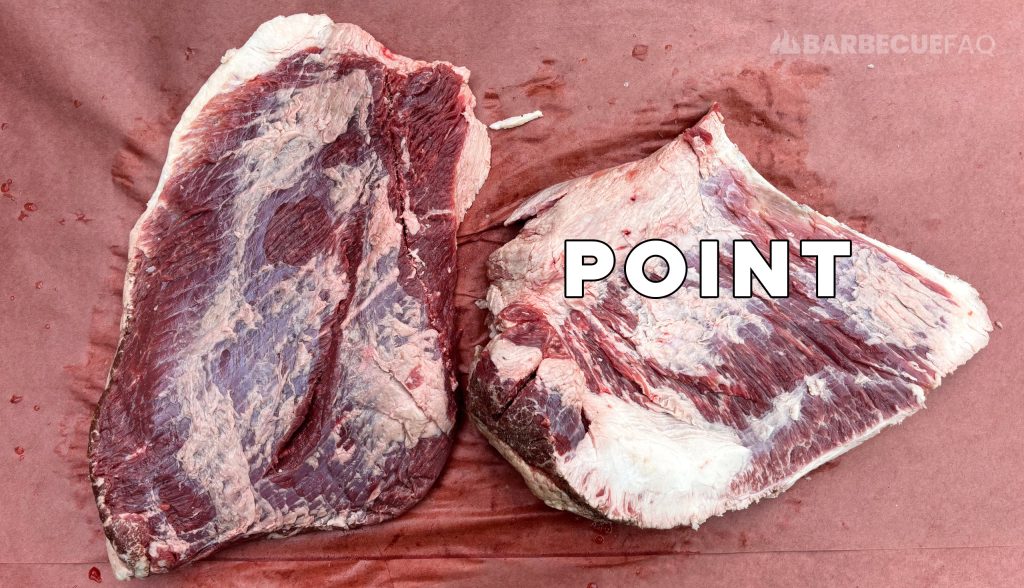
Depending on where you live, you won’t see this sold separately – unless it was sold pre-brined for corned beef.
“I See the Word Deckle A Lot When I Read and Hear About Brisket”
For some reason a lot of websites and resources will call the point the “deckle,” however this isn’t true.
When looking at the USDA Institutional Meat Purchasing Standard (IMPS) – the brisket you’ll find at your grocery store is “120 Beef Brisket, Deckle-off, Boneless.
The deckle is not the brisket point, nor the fat between the muscles.
Deckle is hard fat and muscle that attaches to the cow’s rib cage.
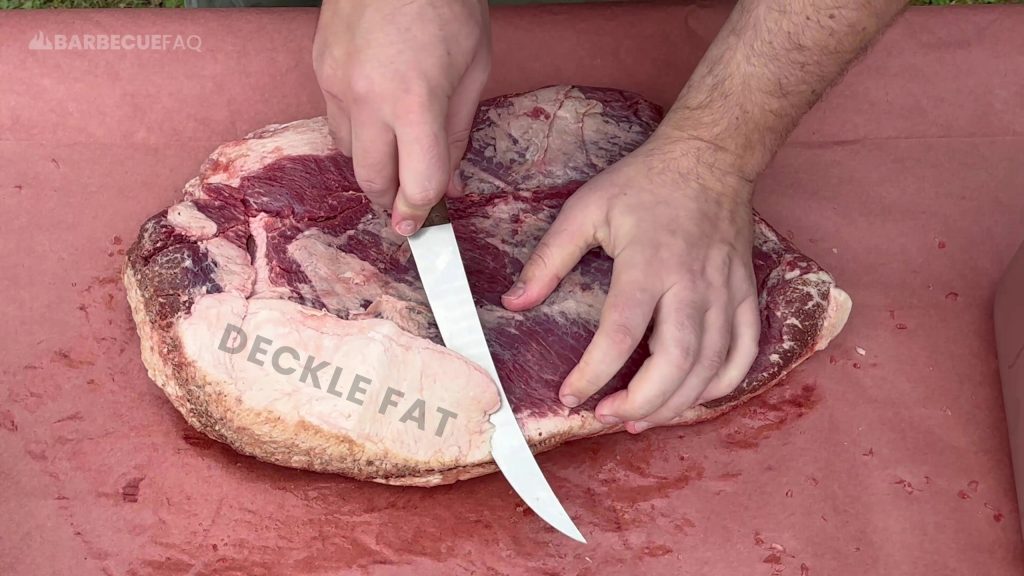
The briskets you buy from a grocery store will have the deckle removed but will have some of the hard deckle fat intact – which is easily removed.


